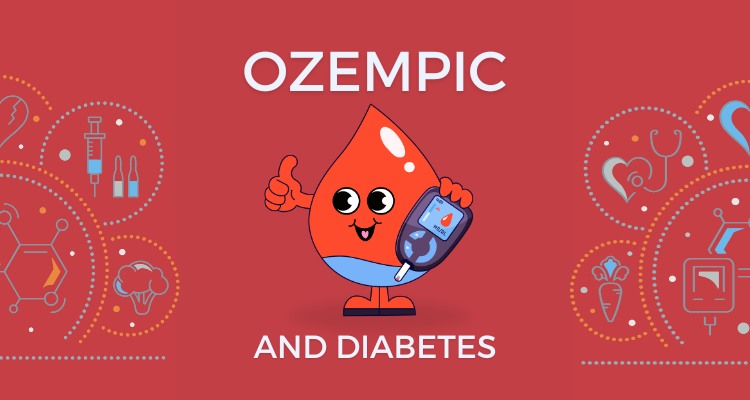How Does Ozempic Work for Diabetes?
If you or someone you love is living with type 2 diabetes, you’ve probably heard the name Ozempic. It’s been making headlines lately, not just for its role in blood sugar control, but also for its effect on weight. But what exactly does it do, and how does Ozempic work for diabetes? Let’s break it down in simple terms.
What is Ozempic?
Think of Ozempic as a helper for your body’s natural system that keeps blood sugar in check. It’s a prescription medicine that you take once a week as a small injection. Its main job? Help your body use insulin better and keep your blood sugar from getting too high after meals.
How Ozempic Works in the Body
Here’s an easy way to picture it:
Imagine your body as a kitchen, and your blood sugar as the sugar in a recipe. In type 2 diabetes, your “kitchen” has trouble using sugar properly, it either makes too much or can’t use it well. Ozempic acts like a friendly chef’s assistant who helps keep things balanced. It works in three main ways:
- Helps your pancreas release insulin when you need it: Insulin is like a key that unlocks your cells so sugar can get in and be used for energy. Ozempic helps your pancreas make more insulin, but only when your blood sugar is high.
- Stops your liver from making too much sugar: Your liver stores sugar and can release it into your blood. With type 2 diabetes, it can sometimes release too much. Ozempic tells your liver to slow down so your blood sugar doesn’t spike.
- Slows down how quickly food leaves your stomach: This means sugar from your meals enters your blood more slowly, which helps keep blood sugar levels steady. Many people also feel full longer, which can help with weight management.
Why Ozempic is Different
Unlike some medicines that force your body to release insulin all the time (which can cause low blood sugar), Ozempic works only when it’s needed. That’s why it’s often well-tolerated and safer for many people.
Another plus? Many people who take Ozempic notice gradual weight loss. This is partly because they feel full sooner and eat less, which can also help with diabetes control.
Lifestyle Changes to Enhance Ozempic’s Effectiveness
Here are some simple changes that can make a big difference:
- Choose Balanced Meals: Aim for plates that include lean proteins (like chicken, fish, beans), plenty of vegetables, and whole grains.
- Move Your Body Regularly: Even 20–30 minutes of walking, cycling, or swimming most days can help your body use insulin better.
- Stay Hydrated: Drinking enough water keeps your body running smoothly and helps prevent dehydration, which can sometimes raise blood sugar.
- Watch Portion Sizes: Since Ozempic can help you feel full faster, listen to your body’s hunger signals. Smaller portions can mean steadier blood sugar and gradual weight loss.
- Get Enough Sleep: Poor sleep can mess with your hormones, making it harder to control blood sugar. Aim for 7–8 hours of rest each night.
- Manage Stress: Stress can raise blood sugar levels. Try simple activities like deep breathing, meditation, or even a hobby you enjoy.
Is Ozempic Right for You?
Only your doctor can answer that. Ozempic is usually prescribed for adults with type 2 diabetes who haven’t been able to reach their blood sugar goals with diet, exercise, and other medications. It’s not for type 1 diabetes or for people who only have high blood sugar during pregnancy.
The Bottom Line
Once you and your doctor decide on the best treatment for your health needs, you don’t have to make multiple trips to the pharmacy. You can check trusted online options like PharmaServe to get your prescription filled, including buying Ozempic online quickly and conveniently.
At PharmaServe, you’ll often find better prices, reliable stock, and even special perks for loyal customers. Always keep the conversation open with your healthcare provider about any medication you’re taking. And if you have questions or want to share your experience with Ozempic, feel free to leave a comment, we’re here to help.
References and Further Reading
This article offers general information. It’s NOT a substitute for consulting a healthcare professional about weight loss medications. Always make decisions about your treatment in collaboration with your doctor.



